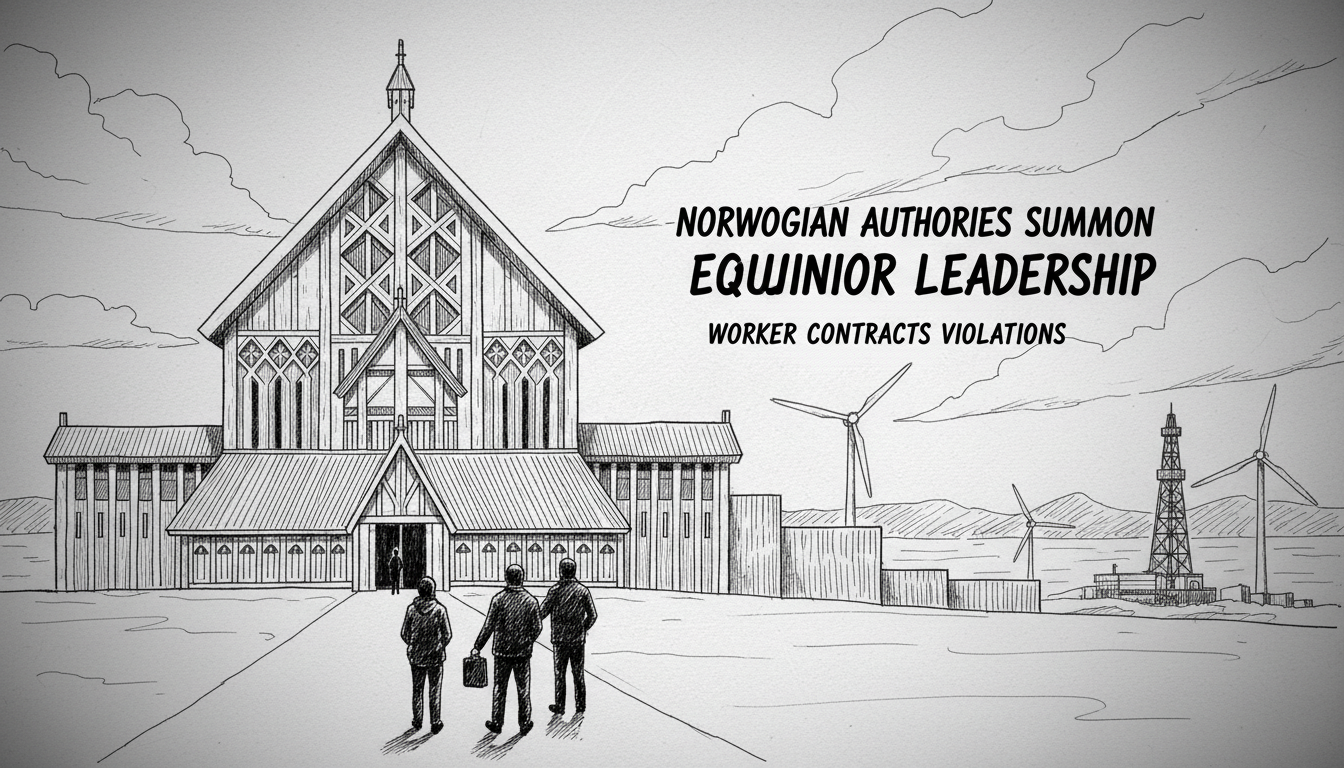Norwegian safety regulators have called Equinor's top executives to an emergency meeting. The country's Petroleum Safety Authority wants answers about illegal work contracts for foreign temporary workers on Equinor's oil and gas facilities. This marks the latest in a series of labor controversies surrounding Norway's largest energy company.
Legal experts recently concluded that numerous foreign contract workers had unlawful employment agreements. Several staffing agencies providing these workers dispute these findings. The core issue involves workers receiving five-week contracts repeatedly rather than permanent positions. This practice allows agencies to terminate workers immediately after each assignment ends.
Sigve Knudsen, director of the Petroleum Safety Authority, stated that all workers deserve safe and legal working conditions. He said regulators would determine further actions based on the meeting's outcomes. Norwegian law requires that temporary workers generally receive permanent contracts with staffing agencies. This ensures income stability between projects.
Documents show some contracts guaranteed only 20-50% of full-time hours. Yet pay slips reveal workers consistently worked far beyond these percentages. Norwegian employers must provide work hours matching what they actually require from employees.
The three summoned executives include CEO Anders Opedal and directors Irene Rummelhoff and Kjetil Hove. Rummelhoff oversees land facilities like Melkøya, where Equinor processes offshore gas. Hove manages the company's Norwegian continental shelf operations.
This controversy continues a pattern of labor issues at Equinor. Opedal recently acknowledged unacceptable conditions revealed in media reports. He announced Equinor would establish a special group to examine whether the company properly oversees operations during high-activity periods with extra temporary workers.
Despite summoning leadership, the Petroleum Safety Authority faces limitations. Regulators acknowledge they cannot determine contract legality or force companies to rectify illegal agreements. Their authority focuses on ensuring companies maintain proper working environments.
Norway's strict labor protections contrast with practices in many other oil-producing nations. The country mandates equal treatment for temporary and permanent workers. This case tests whether energy companies comply with these standards during workforce expansions.
Equinor's response could influence broader industry practices. As Norway's dominant energy company, its labor standards often set precedents for smaller operators. The meeting's outcome may determine whether regulators seek expanded authority over contract arrangements.
International workers comprise substantial portions of Norway's offshore workforce. Their treatment affects Norway's reputation for fair labor practices. The government maintains strict oversight of its valuable energy sector while balancing industry flexibility needs.
This situation highlights tensions between temporary staffing models and Norwegian labor law. Companies value flexibility during production peaks. Workers need income stability between projects. Regulators must enforce laws while recognizing industry operational realities.

